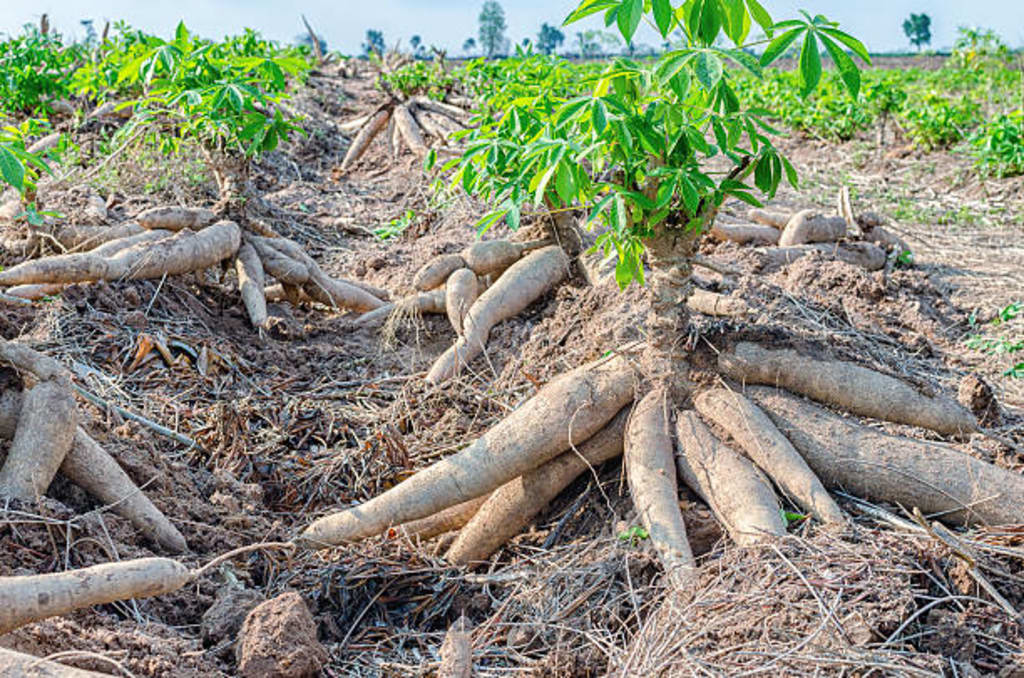
Nigeria, the African giant, stands proud as the world's largest producer of cassava, locally known as Yuka. This versatile root vegetable has been a staple food in Nigeria, expertly transformed into delectable dishes like Fufu and gari. But it's not just Nigeria; cassava is celebrated across Africa for its resistance to drought and pests, and its richness in calories and vitamin C. In fact, its potential to replace more expensive starches like wheat and rice has made it a savior for regions prone to famine.
As the demand for this gluten-free Superfood soars worldwide, Nigeria holds a trump card in the form of cassava. Yet, despite its bountiful harvests, Nigeria faces challenges in its cassava supply chain, hindering its foray into the global export market. Could innovative solutions and strategic investments unlock the hidden billions in cassava trade for Nigeria?
The Rise of Cassava in Africa: A Tale of Resilience and Adaptation
Originating from South America, cassava is a shrub with edible roots, but its raw form contains cyanide, making it poisonous. Indigenous people in the Amazon River Basin discovered centuries ago that processing cassava through grading, straining, and cooking renders it safe to eat. Portuguese colonizers then introduced cassava to Africa in the 16th century, while enslaved Africans returning from Brazil in the 1850s brought along their cassava cooking methods.
Recognizing its hardiness and famine-prevention abilities, Europeans encouraged the cultivation of cassava in Africa. Across the continent, various cooking techniques emerged, and in Nigeria, the ground and dried cassava pulps became known as gari, offering a longer-lasting food source. Over time, cassava replaced native yams as the primary food source across Africa, making it an integral part of almost every household.
The Paradox of Plenty: Challenges in Cassava Farming
Today, Nigeria produces over 60 million tons of cassava annually, yet many cassava farmers struggle to earn a decent income, with some earning as little as one dollar a day. Farming on small plots hampers the economies of scale, leading some to choose more profitable crops like corn, rice, or wheat. However, cassava stands out for its ability to thrive in poor quality soil, requiring less fertilizer and water.
Despite these advantages, Nigerian cassava farmers face low yields due to various factors, including uneven soil and limited access to machinery and tractors. Manual harvesting and suboptimal seed varieties contribute to reduced productivity, leaving them with one of the lowest yields per acre globally.
A Visionary's Solution: Empowering Farmers and Revitalizing the Supply Chain
Yamisi Iranloye, an enterprising entrepreneur, saw an opportunity to change the game for Nigerian cassava farmers. In 2005, she founded Sultry International, a cassava processing company that soon attracted major customers like Nestle and Unilever. By partnering with farmers and introducing new cassava varieties, Yamisi's company improved yields and provided financial security, increasing farmers' daily income from less than a dollar to about $10.
Her innovations didn't stop there. Yamisi tackled the spoilage problem by ensuring immediate processing of cassava after harvesting. By implementing efficient processing techniques, Sultry International now handles a staggering 100 million kilos of cassava each year, producing valuable exports like sorbitol, starches, and sweeteners used in a variety of industries, including food, beverages, and pharmaceuticals.
A World of Opportunities: Nigeria's Cassava in Global Trade
While Sultry International has emerged as one of Nigeria's largest cassava processors, a significant portion of the country's cassava still remains untapped in the global market. Nigeria's rank as the 59th global exporter of cassava, despite being the top producer, raises questions about the country's potential in cashing in on the global demand.
Thailand serves as a prime example of a country reaping the benefits of cassava exports, earning a staggering $1.3 billion from exporting cassava in 2021, despite producing less than half of Nigeria's output. Nigeria, on the other hand, earned a mere $1 million from cassava exports that same year. The demand for cassava derivatives like Sorbitol is on the rise, and Nigeria's current imports of 95% of its starch present a clear opportunity for growth.
A Call to Action: Embracing the Power of Cassava
To seize this golden opportunity, Nigeria must take decisive action. Government support, such as building better roads near farms and investing in new cassava varieties, will enhance the efficiency of cassava farming. Increasing awareness among Nigerians about the vast potential of cassava as an export commodity is crucial to transforming the perception of this golden crop.
With visionary entrepreneurs like Yamisi leading the way, Nigeria can prove that cassava investments can be a game-changer. As more farmers shift from subsistence to industrial use, high global demand promises higher value for their crops. By harnessing the economic potential of cassava, Nigeria can rightfully claim its place on the global stage as a dominant force in the cassava trade, solidifying its position as the unrivaled world leader in cassava production.





Comments (1)
I appreciate hearing stories about anything related to farming, growing your own food, living in harmony with nature. Learning about the cassava was refreshing. Thank you for your story.